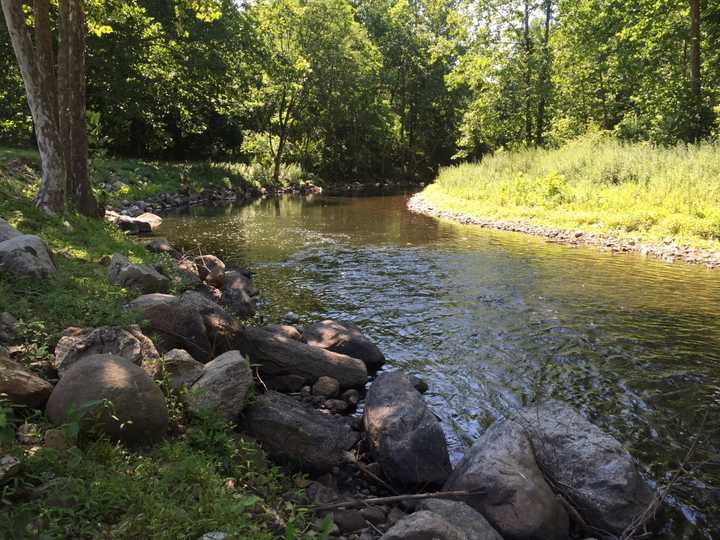The river was part of the backdrop on a hot summer day as County Executive Ed Day declared a Stage II Water Emergency in Rockland. Due to the amount of rainfall from March to June being below the annual average by 36 percent the county is now imposing water usage restrictions.
“This is serious stuff. Water is our most precious natural resource. It drives our economy, it keeps us healthy,” Day said. The hope is that these measures that mainly affect outdoor water use will prevent the declaration of a Stage III Emergency.
The restrictions include:
- Properties with addresses ending in an odd number are instructed to water only on Mondays and Thursdays, and those with addresses ending in an even number only on Tuesdays and Fridays, between 2 AM and 6 AM for automatic, in-ground irrigation systems OR between 5 PM and 9 PM for manual sprinklers or hose fed irrigation. Watering in accordance with this two-day schedule is consistent with current best practice recommendations, and will be considered fully compliant, even though strict interpretation of Article V calls for alternate-day watering.
- Water may not be used to wash non-public paved surfaces such as sidewalks, driveways, garages, parking areas and patios.
- With the exception of emergency vehicles, only commercial car washes can clean automobiles, trucks or trailers.
- Water cannot be served in restaurants unless the patron requests it.
- The use of flow-through (non-recycled) fountains, artificial waterfalls and reflecting pools is not allowed.
- Water cannot be used for flushing sewers or hydrants except for emergencies.
- All water leaks must be repaired within 48 hours.
- No bulk water supply from any source within the county may be exported outside the county.
The decision comes as more hot, dry weather is expected with no significant weather patterns in sight to provide sustained rains, said Dan Miller, Ph.D., Rockland Department of Health, Water Supply Program Manager.
Day explained that a lack of rainfall is the cause of the current situation, with Lake DeForest sitting roughly 86 percent of it's capacity.
During the summer, 10 to 20 percent of county water comes from the Ramapo River Well Field, 40 percent from Lake DeForest, and 4 percent from the lakes at Letchworth; the remaining 46 percent of water comes from system wells, according to Day.
If the flow of the Ramapo River is less than 8 million gallons of water per day, by law the well field must shut down. The well field is currently providing about 10 percent of the county’s water needs, according to Miller.
“If we have to shut that well field down, we’ll have to cut our demand by 10 percent and that’s what we’re trying to do right now,” Miller said.
Suffern and Nyack customers along with private well owners will also be subject to the restrictions in addition to Suez customers.
Noncompliance could result in a fine of up to $2,000 per day and the restrictions will be complaint driven and enforced by the county Health Department.
Click here to follow Daily Voice Monsey and receive free news updates.


